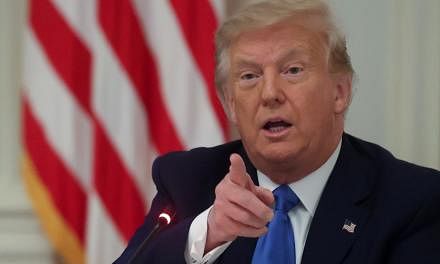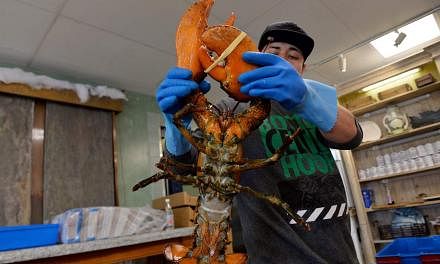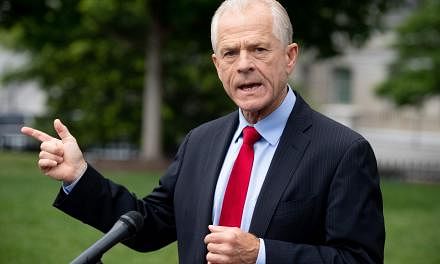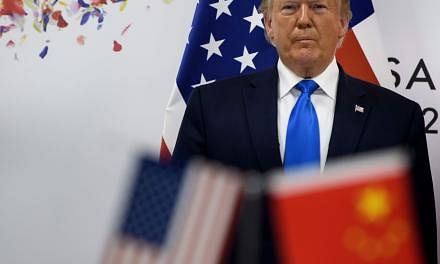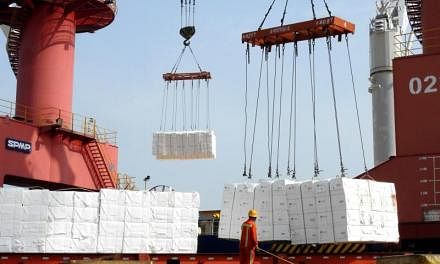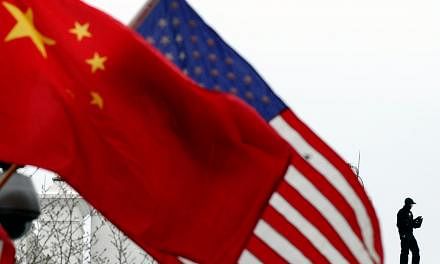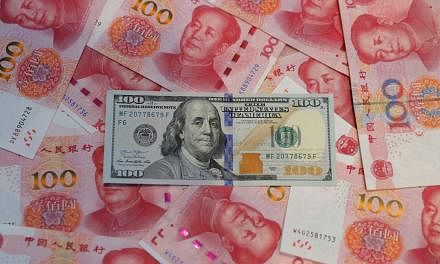WASHINGTON (REUTERS, AFP) - The United States is getting close to a trade agreement with China, White House economic adviser Larry Kudlow said on Thursday (Nov 14), citing what he called very constructive discussions with Beijing.
Mr Kudlow said negotiators for the world's two largest economies were in close touch via telephone but he gave no further details on the timing of a possible deal.
"We're getting close," he told an event at the Council on Foreign Relations in Washington. "The mood music is pretty good, and that has not always been so in these things."
The US and China have been locked in successive waves of tit-for-tat tariffs that have roiled financial markets and threatened to drag growth in the global economy to its lowest rate since the 2007-2008 financial crisis.
Markets are anxiously awaiting an agreement to end uncertainty that has slowed business investment around the globe.
An agreement had appeared likely in May, but those prospects were dashed after US negotiators said China backed away from the text of a draft agreement.
Mr Kudlow's comments could ease market concerns that flared again this week amid reports that the trade talks had hit a snag over how and when to reduce tariffs, and what level of agricultural purchases could be expected from China.
Markets also soured after US President Donald Trump on Tuesday said he could impose substantial new tariffs on China if no deal was reached.
Mr Kudlow told the audience he had just come from a meeting of the top Trump administration trade officials and was more optimistic.
"It's not done yet, but there has been very good progress and the talks have been very constructive," he told the event.
He also opened the door to the possibility that Mr Trump and Chinese President Xi Jinping would not need to meet in person to clinch a deal.
Mr Trump had hoped to sign the "phase one" agreement with China on the sidelines of the Asia-Pacific Economic Cooperation summit in Chile this month, but that possibility disappeared after Chile withdrew from hosting the event.
Mr Kudlow said the White House had hoped to stick to that general timetable. He joked that his preference was for the deal to be signed in his office on the second floor of the White House. "I don't like to travel," he quipped.
Earlier on Thursday, China said it is discussing with the US "in depth" about a first phase trade deal and a potential rollback of tariffs, despite recent mixed messages over the lingering trade impasse.
Amid signs of easing tensions, the Chinese commerce ministry last week said the two sides had agreed on a plan to roll back tariffs in stages - only to have President Trump deny that any such plan had been made. Mr Trump warned on Tuesday that he could even increase tariffs further if a partial deal with Beijing failed to materialise.
But China's commerce ministry spokesman Gao Feng sounded a more positive note on Thursday, and said Beijing was "willing to work together with the US... and to create conditions for the first phase of the agreement".
"If the two parties reach a first phase agreement, the extent of the tariff cancellations should fully reflect the importance of the first phase agreement," Mr Gao said at a regular briefing in Beijing.
"The two sides are discussing this issue in depth."
Mr Trump last month held off on a round of tariff increases, and White House officials have suggested that as part of the current mini-deal, he could delay fresh tariffs on US$160 billion (S$217 billion) worth of Chinese goods planned for mid-December.
The partial deal could also include promises from Beijing to increase purchases of US farm goods and better protections for intellectual property rights.
Mr Gao said the elimination of tariffs was "in line with the interests of producers and consumers, in line with the interests of China and the United States, and in line with world interests".
Economic data show the uncertainty created by the dispute between the world's two biggest economies is undermining global growth. The International Monetary Fund has cut its global growth forecast and warned that implementing all the announced tariffs would cut US$700 billion out of the world economy next year.
Separately, China's customs administration on Thursday said that it was removing restrictions on US poultry imports and "allowing US poultry imports that abide by the requirements of our country's laws and regulations".


